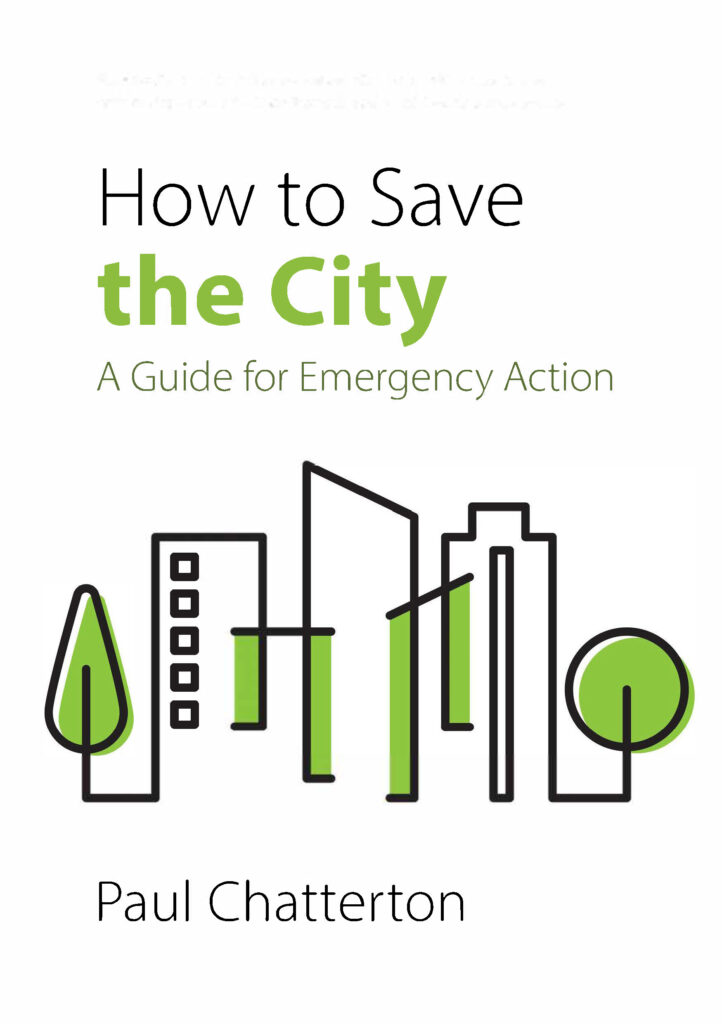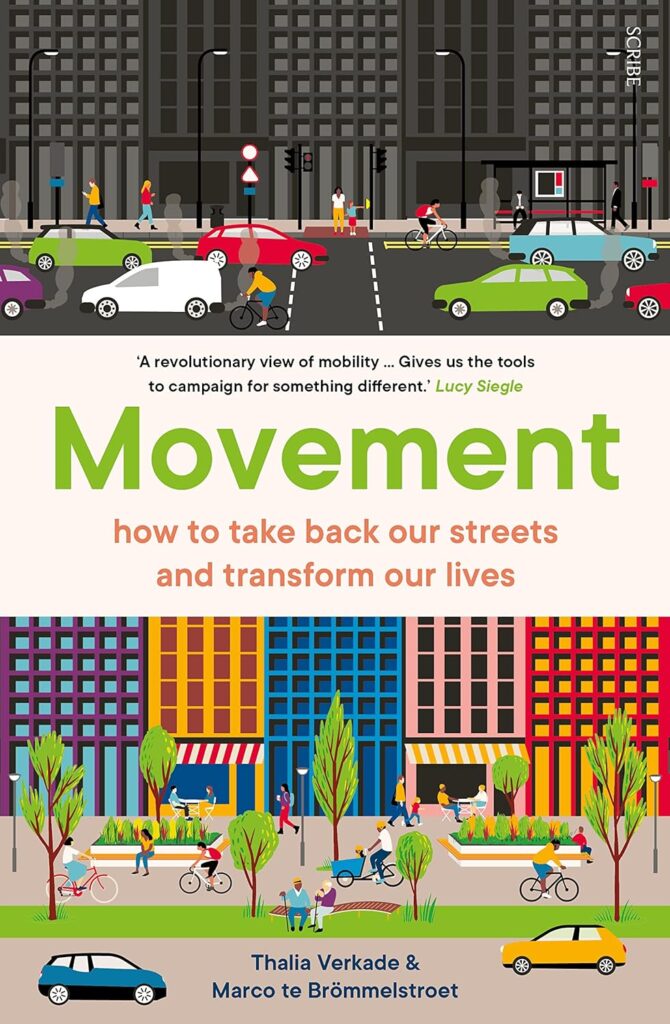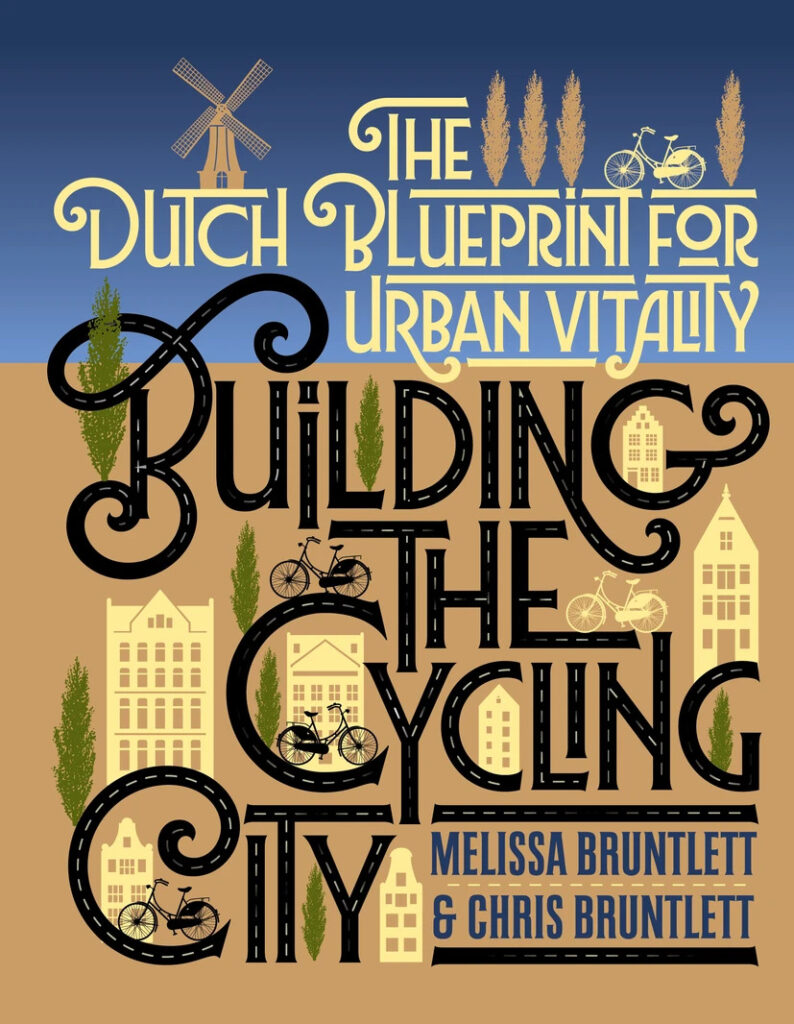Activism is often an expression of a way of being in the world. It involves an ontological (re)orientation. In other words, it is about (re)discovering new ways of being in the world. Activism is a journey, not a means to an end. Indeed, reaching a fixed end would suggest that the journey is over: no more change required. Achievement of any specific campaign goal may be counted as a victory, but it will not bring about a perfect world. Rather, every action and campaign is a means by which to steer the direction of change in a constantly shifting world.
(p. 16)

What is it about?
How can we define cycling activism? What do bicycle activists want? Are there meaningful connections between critical cycling practices in different geographies? How can we look beyond local and individual campaigns and create a bigger picture to understand bicycle activism as a whole? If we want to do this, are the available models and lenses able to make this clear? What approach can we use to make a meaningful connection between cycling studies and social movement studies? What can each add to the other? Cycling Activism is a full-length study of cycling activism that revolves around such questions.
Cycling Activism crosses disciplinary boundaries and seeks to look at cycling practice and cycling activism through the lens of social movement theory. It can be seen as a bridge between academia and biography, with this belief that cycling is a powerful tool for both the interests of cyclists and the articulation of broader social concerns. The core idea is that cycling itself is not a political act, but is politicized through its linkage to other ideas, goals, and processes.
The right to ride and the practical possibilities of riding require political recognition and incorporating into political decision-making. Who is allowed to ride and where they can ride can be restricted by political fiat .
(p.xx)
The book is included in The Mobilization Series on Social Movements, Protest, and Culture which publishes research in social movements, protest, and strategies of resistance. Peter Cox, the author, who a founder member of the Cycling and Society Research Group and a famous researcher on the sociology and the politics of sustainable transport and cycling. He is the author of Cycling: A Sociology of Vélomobility and Moving People: Sustainable Transport Development, editor of Cycling Cultures and co-editor of The Politics of Cycling Infrastructure, Cycling and Society, and the Routledge Companion to Cycling. He became involved in bike activism after university in the early 1990s and his academic studies allowed him to maintain engagement with activists.
With a university training in anthropology and ethnographic methods and having studied social movement and social activism at both undergraduate and doctoral level, I began looking more widely at cycle activism as a form of community engagement and social action in the early 2000s.
(p.43)
The book is divided into two clear sections:
The first section, as a theoretical foundation, focuses on “social movement studies and the ways in which the study of bicycle activism challenges some commonplace assumptions about social action and social change” (p. 17). The goal is to present a model for rethinking bicycle activism as an academic socio-political study. The primary concern is how we can create a foundational perspective for considering collective bicycle action and connect it to the body of knowledge in social movement studies.
Some important questions in this part may be: Is cycling a political act? What do cyclist activists want? Is activism merely a means to achieve certain goals, or is the process itself important? Can movements be reduced to campaigns? How is bicycle activism related to larger socio-political concerns? What is the relationship between cycling activism and social change? What is the contribution of the New Mobility Paradigm to the study of social movements and bicycle activism?
The second part of the book analyzes some selected case studies linked to the theoretical discussion in order to understand how cycling practices and policies have developed. The main objective is to understand the connections and disconnections between them. The case studies are divided into two distinct groups: Examples within the geographical framework of the UK and examples within a wider geographical framework from a global perspective. History and geography are the two main variables here.
Isolating geography as variable allows longitudinal comparison to examine how changes and development emerge or are forced over time. Isolating time as a variable allows us better to see how activism responds to differing contexts, social, political and economic .
(p. 122)
The case studies focus on the historic politics of the UK, cycling practice and the challenge of public space, campaigns organized in specific relationship to existing government institutions, and peer-to-peer support actions that view everyday cycling as both an assertion of the right to mobility and a form of everyday resistance.
What approach does it take?
Using a Foucauldian approach, the book looks at bicycle activism from the perspective of social movement studies to present a theoretical foundation through which diverse cycling practices and approaches to change can be understood. The author believes that both fields can help each other to better understand and develop intellectually.
At heart, I want to argue not only that applying lessons for social movement studies allows us to understand bike activism better but also that studying cycle activism can expand how we think about social movements.
(p. 20)
To explain the cases, the book focuses on book-length national historical studies, individual city studies, comparative studies, and micro-level studies of activism to paint a comprehensive picture of cycling practices in the section with social movement studies.
Who might be interested in this book?
The book will appeal to cycling activists, transport planners, sociologists, and anyone interested in social change and understanding bicycle activism through the lens of social movement theory.
Further details
- Academic disciplines: Mobilities, sociology, cycling studies, cultural studies, and planning.
- Geographical scope: UK with selected examples from other parts of the world
- Relation to cycling: Cycling and cycling activism are central to the book.
- Reference (APA): Cox, P. (2024). Cycling Activism: Bike Politics and Social Movements. Routledge.



